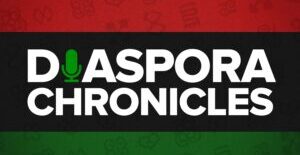“When looking for a job there are four attributes Ed considers: 1) Flexibility, 2) Reporting relationships, 3) Ability to manage in a manner that is consistent with his values and 4) Company culture.”
We sat down with Ed Rogowski, who has taken on leadership roles in multiple Fortune 500 companies and most importantly, I have seen him mentor a significant number of employees throughout their careers.
We touched on many topics during our discussion with Ed, including what he looks for when he hires talent within his organization, his role as a board member and his expectations from the Executive team. We also touch on his experience sponsoring immigrants over the years and how that process has evolved over time.
Background
Ed Rogowski is currently the Senior Vice President of Audit at Anixter Inc., a global supply chain logistics company based in Glenview, IL. In addition, Ed is the Chairman of the Board of Directors at Alliant Credit Union, one of the largest credit union banks in the country with over $12 Billion in assets.
Ed graduated from the University of Illinois in 1985 with a degree in Accounting, after his graduation, he worked at Arthur Andersen in their Attestation department, he spent 6 years at Arthur Andersen and left for United Airlines where he spent about 20 years in multiple functions including Audit, International Accounting, Accounts Payable and Payroll, Accounting Controls, financial reporting, accounting research, pension accounting, fuel property accounting, Enterprise Risk Management, and the Chair of the Finance Committee of the Star Alliance. He later joined Hospira Inc, a Pharmaceutical manufacturing company as the Head of Internal Audit and Risk Management, and in 2015, he joined Anixter as the Senior Vice President of Internal Audit.
Critical factors when job hunting
When looking for a job there are four attributes Ed considers: 1) Flexibility, 2) Reporting relationships, 3) Ability to manage in a manner that is consistent with his values and 4) Company culture. According to Ed, these four attributes have evolved over time. Earlier in his career compensation was a top four but now it’s not in his top four category; however, autonomy and flexibility are more important. As an individual looking for a job, it is critical to first identify what attributes are most important to you. When interviewing for a job, identify which jobs align with your attributes and use that as part of your selection process.
Comparing big companies to small companies; Ed sees many benefits in joining a large company as opposed to a smaller sized company especially early in your career. Even though being in a smaller company allows you to wear many hats and take on multiple roles, the benefit of working in a large structured working environment in many cases outweighs the benefits of a smaller working environment. Larger companies tend to devote resources to strong processes and best practices enabling workers to learn from the best. In addition, larger companies have many departments allowing employees to make lateral moves to get a well-rounded working experience.
Hiring
Ed believes that every hiring manager has their own criteria which they use to hire candidates. For him, he tends to favor students who worked while in school and he does not place as much reliance on grades as other hiring managers do. When hiring new employees, Ed focuses on two categories of skills: Technical and Soft skills. Technical skills include skills such as software expertise, understanding financial statements, etc. Soft skills include communication, team work, ability to lead a team.
- New grads at the staff or analyst level are assessed 80% on technical skills and 20% on soft skills
- Manager level candidates are assessed 50% technical skills and 50% on soft skills
- VP level candidates are assessed 20% on technical skills and 80% on soft skills
Below is a chart that illustrates this progression:

Expectation from Executive team
As the Chairman of the Board at Alliant Credit Union, Ed and the rest of the Board of Directors are responsible for the general direction and control of the company. An analogy he uses is that a company is a bus, and the CEO is the driver. As long as the bus is going in the right direction, the Board goes along for the ride. However, if the bus is going off course, the job of the Board is to ask the right questions to ensure that the bus going down the correct route.
Ideally when looking for a CEO, his preference is to promote an Executive within the organization, ideally you want someone who has experience in multiple functions within the organization. Ideally, you want a candidate with a strategic thought that can articulate the goals of the company and can define a strategy to meet the objectives.
Diversity and Inclusion (D&I) in Corporate America
The idea of increased emphasis on D&I is not a new concept. The thought process is that the more diverse a company is, the more likely the company is able to operate effectively in the diverse market place we live in. Ideally, your workforce should represent the diverse customer base you serve. Ed believes that there is a positive correlation between diversity in the work place and the profitability of the company because diverse thoughts and opinions are brought to the table when it comes to decision making. Most Fortune 500 companies have an international foot print so it only makes sense to have a diverse workforce to better service the diverse customer base you are supporting.
Networking, Networking, Networking
Networking is very important to our professional careers because it leads to greater opportunities, however, not everyone is comfortable with the networking process. The best way to address this requirement is to come to the realization that networking is part of a skill set you need to be successful, and one needs to place emphases on developing that skill. Many companies have internal working groups such as Toastmasters and other affinity groups that allow you to build a small network that can get you comfortable and then allow you to organically expand your network beyond the working group through informal introductions to other co-workers in the company.
Sponsoring foreign employees
United Airlines went through a significant international expansion process while Ed worked at the company. He believed that it made sense to have a work force that reflected the international customers United was acquiring. As a result, he hired many foreign employees and some that needed sponsorship. Hiring these employees helped with cultural and language communication when performing services within his department. Unfortunately, there is a cost to the sponsoring process which includes the company hiring an immigration attorney and also proving that there are no US candidates that can perform the role.
Ed finds sponsoring immigrants as one of the most rewarding acts of his career as he has been able to sponsor quite a few employees who have gone on to become US citizens. However, with multiple government regulations, it has become increasingly difficult to sponsor employees overtime.
If one is an international student in college with the intention of working in the US, it is best to reach out to the university career services center right away to identify which companies sponsor employees. Once you receive that list, it is best you start reaching out to the companies via email or LinkedIn, get on their radar so when you graduate and you apply, they are familiar with you and are more likely to consider you during the application process.


